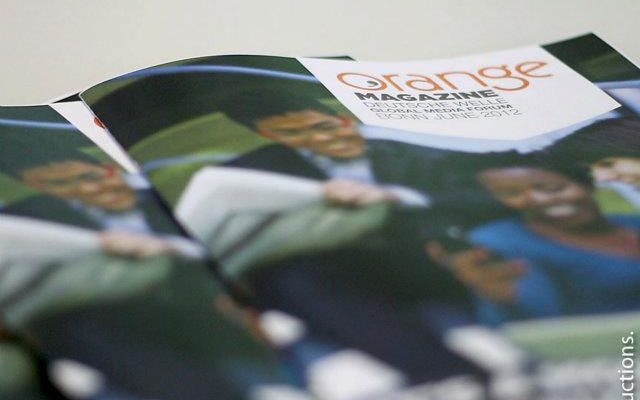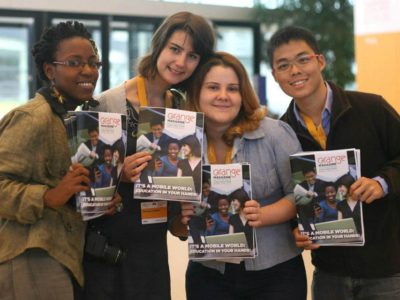In front of a standing room only crowd moderated by Kristin Zeier, Head of Background English at Deutsche Welle in Bonn, a panel of media experts gathered to discuss “An Algorithmic View of the World: How Google and others Shape Awareness and Education.”
The three panelists were Dr. Marc Jan Eumann, Secretary of State for the Minister for Federal Affairs, Europe and Media of the State of North Rhine-Westphalia, Dr. Mercedez Bunz, a journalist, digital thinker, and author based in London, and Falk Lüke, a freelance journalist from Berlin.
For the non-techies out there, an algorithm is – according to thefreedictionary.com – “a step-by-step problem-solving procedure, especially an established, recursive computational procedure for solving a problem in a finite number of steps.”
Zeier opened the discussion by saying, “Algorithms make it possible for us to find what we need. They are a necessary support for us to search for information on the web. On the flip side, they limit the diversity of information on the web. This may limit our perceptions on the world. Some say that search engines are a threat to our democracy.” Bund simplified the problem by saying, that we are debating the “cultural technique of the algorithm, administrating the knowledge of our world. Traditionally, schools and publishing houses would administrate, but now that has fallen on private companies.”
She asserts that this is because since the birth of the World Wide Web it was viewed as a marketplace. Web was that at the beginning, it has been viewed as a marketplace, so it is logical that it’s most important players are in the private sector. Eumann added, “There is a problem as to who is sorting out information. We need to inform society, but it is up to the individual to determine what they want. What’s important to me is diversity.”
The question came up if there was an imminent “risk to diversity” on the web. Lüke replied, “In Brussels, they charge that Google is abusing their market power. They may give precedence for their own offers, for example. So there is a potential risk of limiting diversity. You can of course use alternative search engines.” He emphasized what sets Google apart is the sheer size of its data set, “Google is not so good because it is technically so good, but the more we use them, the better they get. This complex system learns from our behavior.
To build some competition requires a whole lot to get this information in the first place. The web has a tendency toward monopolies. The web gets better because of the network effect: It gets better when more people use it.”
Bunz added, “Google doesn’t care about the individual. The so-called universal algorithm of Google has taken years to construct. If you enter a search term and enter Google, and they have already indexed the web site, then that is compared, has this name been searched for. If there is an increase in search for a specific name of 20%, then the first result will be a news hit for the item.”
Lüke joked that four young people with the same name as him are now “held accountable for what I am publishing.”
Zeier noted that parents now ask, “Do I want to name my children with unique names that are easily found on the web?” Lüke felt that it’s “too narrow to only talk about Google. Algorithms are used in so many other areas.”
When you try to buy a mobile phone, your name is run through a database, and the telecom company checks your creditworthiness. Lüke asserts that this check “has to be based on scientific criteria according to the law, but we don’t really know what’s going on. You have a right to know what the result of data processing is, but you have no right to learn about the algorithm.”
If one thing is clear: The debate over how companies and governments use personal data will certainly be a debate that is carried out well into the 21st century, most likely with an increasing political weight.









